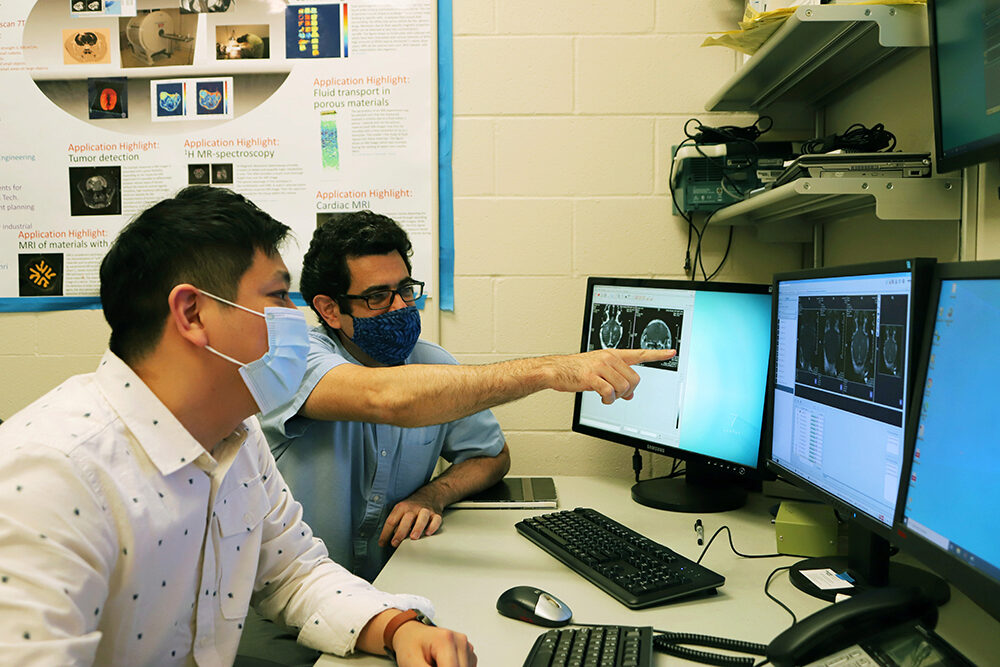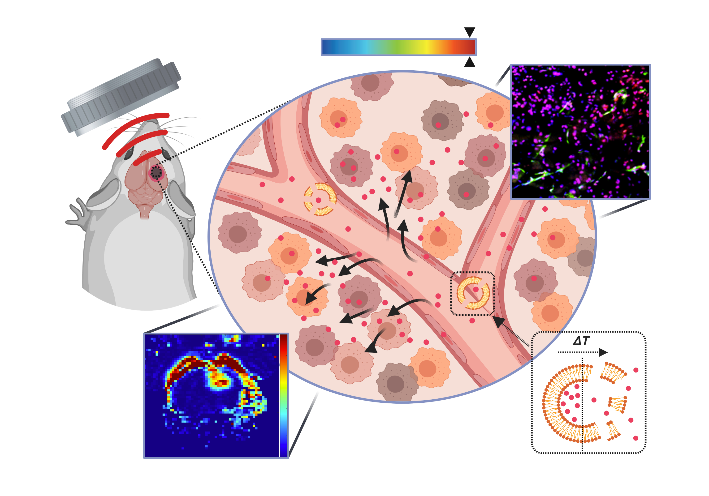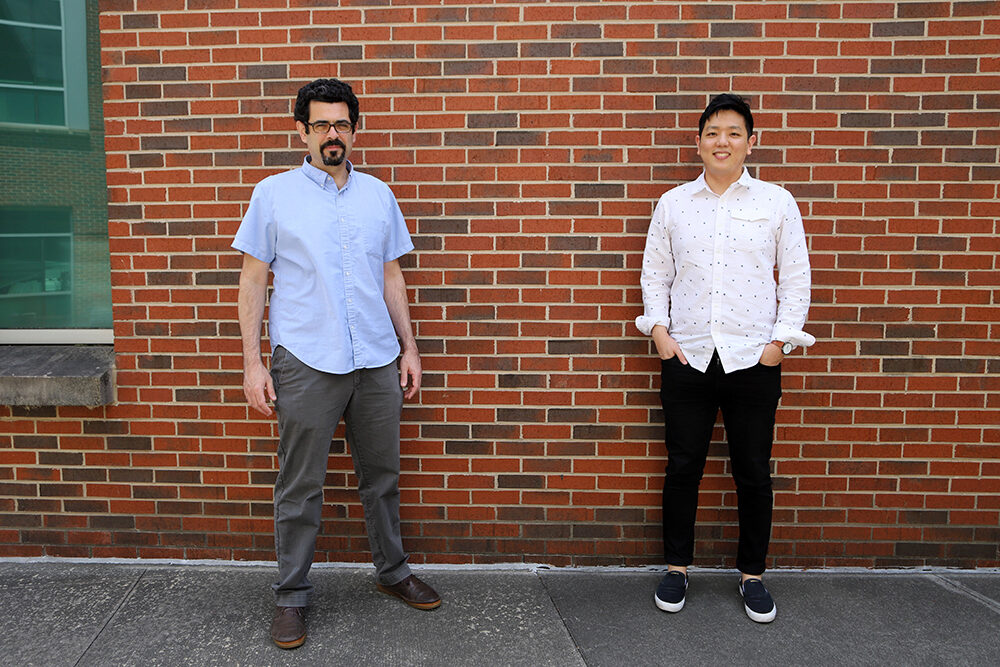
Using Ultrasound-Mediated Thermal Stress and Thermosensitive Drugs to Treat Brain Tumors
May 25, 2021
Effective treatment of aggressive brain tumors, such as glioblastomas, is an unmet clinical need.
Now a multi-institutional team of researchers, led by Costas Arvanitis at the Georgia Institute of Technology and Emory University, has come up with a new way to treat these aggressive tumors.
“Glioma is the most common primary brain tumor with a 5-year overall survival below 10% using the current standard of care. These dismal outcomes call for the development of strategies to improve drug accumulation in the tumor core that are well tolerated by the patients,” said Arvanitis, assistant professor in Georgia Tech’s George W. Woodruff School of Mechanical Engineering and the Wallace H, Coulter Department of Biomedical Engineering.
Although local hyperthermia and stimuli-responsive delivery systems, such as thermosensitive liposomes, represent promising strategies to locally enhance drug delivery in solid tumors and improve treatment outcomes, their application in brain tumors remain limited.

The investigators hypothesized that the combined abilities of closed-loop trans-skull focused ultrasound hyperthermia with those of thermosensitive drugs can alleviate challenges in drug delivery and improve drug uptake and survival in gliomas.
To test their hypothesis the investigators designed and built a closed loop MR-guided Focused Ultrasound (MRgFUS) system for localized trans-skull hyperthermia (ΔT < 0.5 °C) in rodents and established safety thresholds. The results of the research were published on May 24 in Theranostics in a paper titled "Closed-loop trans-skull ultrasound hyperthermia leads to improved drug delivery from thermosensitive drugs and promotes changes in vascular transport dynamics in brain tumors."
“Attaining controlled thermal stress through the skull is not a trivial problem, especially in mice. For example, although at low frequencies (< 1 MHz) most of the energy is transmitted through the skull, the resulting large focal region overlaps substantially with the skull, which due to its higher absorption leads to disproportionally high skull heating. On the other hand, at higher frequencies (> 2 MHz) skull reflections and aberrations become significant, and thus limit our ability to focus the beam in the brain through the skull. Using a physically accurate mathematical modeling, we were able to identify and validate experimentally the optimal frequency for this system (≈ 1.7 MHz) that ensured both reproducible experimentation and heating of the entire tumor at the desired temperature,” said Chulyong Kim the paper’s lead author and a mechanical engineering graduate student.
Using closed-loop control methods the investigators demonstrated that MRgFUS-hyperthermia combined with thermosensitive liposomes loaded with doxorubicin, the most common chemotherapeutic agent, can markedly improve doxorubicin accumulation and uptake in two different preclinical orthotopic glioma tumors.
By using quantitative imaging, they showed that ultrasound-mediated thermal stress increases the vascular permeability in the brain tumor micro-environment, revealing a new transport mechanism for augmenting drug delivery in gliomas. Crucially, they demonstrated significant improvement in the survival of animals treated using the proposed strategy, providing supporting evidence on its therapeutic potential.
“Our mechanistic investigations allowed us to establish a new paradigm for noninvasive targeted drug delivery in glioblastomas and, thus, create new opportunities towards attaining clinically effective drug delivery in patients with aggressive brain tumors,” said Kim.
“We believe our findings will be of great interest to scientists across multiple disciplines, including bioengineering, nanotechnology, and cancer research as well as to clinicians, who need better treatment options for their patients,” said Arvanitis, who noted that they are already working with leaders in the field to refine and translate their findings in the clinic.
Additional co-authors of the Thearnostics paper are Yutong Guo, BSc, and Johannes Leisen, PhD, Georgia Tech; Anastasia Velalopoulou, PhD, University of Pennsylvania; Anjan Motamarry, PhD, Massachusetts General Hospital; Krishna Ramajayam, BSc, and Dieter Haemmerich, PhD, Medical University of South Carolina; and Muna Aryal, PhD, Stanford University. Support for the study includes National Institutes of Health grants R00 EB016971. This work was partially supported by Celsion Corp.
Citation:
Kim C, Guo Y, Velalopoulou A, Leisen J, Motamarry A, Ramajayam K, Aryal M, Haemmerich D, Arvanitis CD. Closed-loop trans-skull ultrasound hyperthermia leads to improved drug delivery from thermosensitive drugs and promotes changes in vascular transport dynamics in brain tumors. Theranostics 2021; 11(15):7276-7293.

